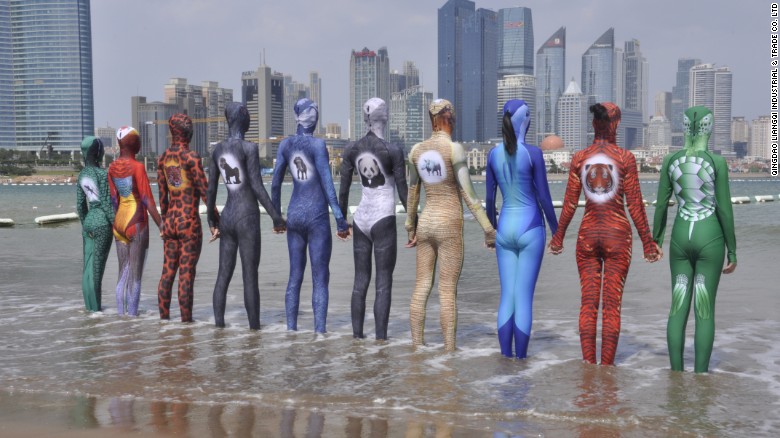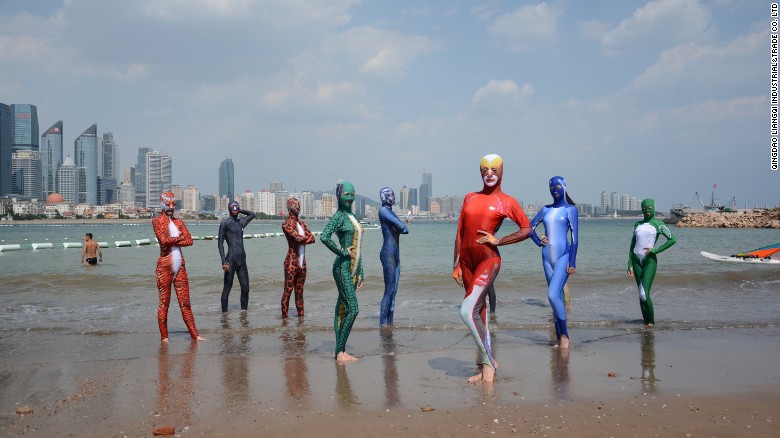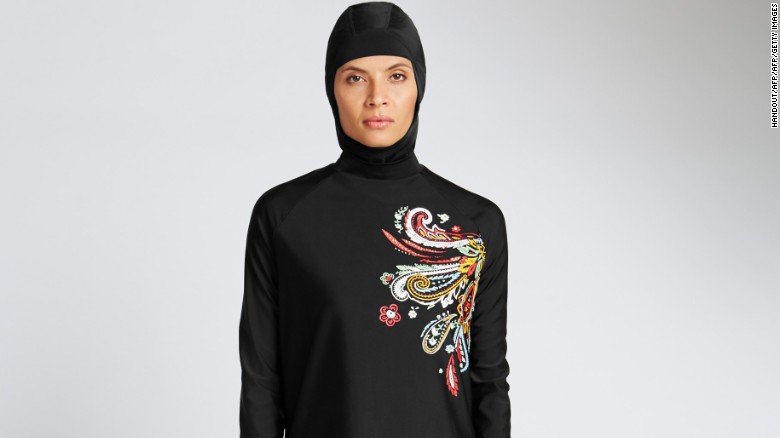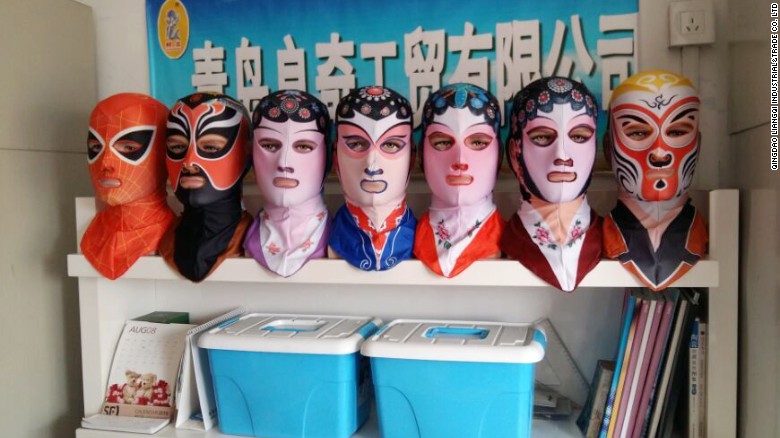'Facekini' wearers in China unfazed by Burkini debate
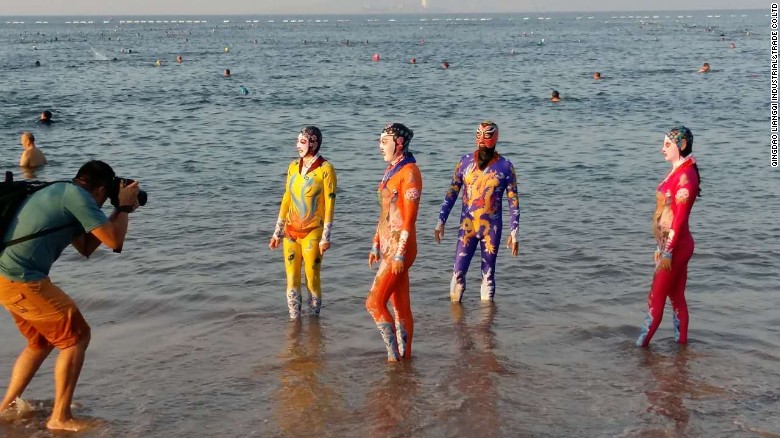
Zhang Shifan claims to be the inventor facekini. This design inspired by traditional Peking opera is among a number of new designs released by her company.
(CNN)A French ban on the burkini -- a swimsuit that covers the whole body except for the face, hands and feet -- has prompted fierce debate, but women in one part of China are wondering what all the fuss is about.
The "facekini" has been popular attire on beaches in eastern China for several years, especially in the city of Qingdao, a seaside city of 9 million.
The skin-tight elasticated fabric masks cover a swimmer's entire head and neck. Holes are cut for eyes, nostrils, mouth and, in some cases, pony tails. Most facekinis cover up the rest of the torso as well.
"I've been using a facekini for nearly ten years," says Wang Huimei, 58, a Qingdao local who goes to the beach almost everyday in summer.
"It's way better than sunscreen lotion that wears off whenever I get inside the water. Plus, the water in this area tends to be cold, it's comfortable to wear and it keeps me warm."
Zhang Shifan says she's the inventor of the facekini and has sold them on Taobao -- China's equivalent of Amazon -- since 2007. She also has a brick-and-mortar store.
The garment was originally designed to protect people from jelly fish bites.
"Suntan protection was a secondary feature but now it's the major appeal to my customers," she adds.
New designs
Zhang says she's sold more than 20,000 facekinis this summer. She released an arresting series of new designs in July that draw inspiration from traditional Peking opera and wild animals.
But while burkini makers have seen a spike in sales as a result of the attempt by some French politicians to prohibit religious attire ion public beaches, Zhang says she hasn't had much success selling outside China.
"We've tried promoting our products overseas after the pictures of our products went viral, but it didn't turn out well. We've only had small orders from Australia, Hong Kong and Taiwan in the past few years."
Buyers tend to be middle aged women like Wang, who adhere to traditional standards of beauty that value paler skin.
The garments have sparked some debate in China, with the pictures of the latest designs widely shared on social media this week. Some Internet users found the designs amusing and creative; others found them shocking.
"Ask French police to arrest them!" one user of Weibo, China's version of Twitter, commented on the photos.
Wang hadn't heard about France's efforts to ban Muslim women from covering up their bodies on beaches.
"I can't really make sense of it," she said. "I thought it's the bikinis that could be banned."

